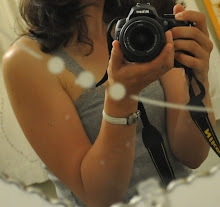The Accordion, Mom, and Me


I don't really remember her playing the accordion. What I see in my head when I think about it, comes from a few black and white photographs (before me) and a few colour ones (after my birth) where my mother, in various poses, holds the hefty accordion (the one we still have at home, in a hard case with rusty locks, one of which doesn't function properly any more). A series of her earnest youthful faces as she stands obediently on the stage next to grandfather or in a school concert, her arms full of accordion and a timid smile flitting across her face; and then a radiant, content, and self-assured older her, playing and singing on my third birthday... She must have stopped playing right around the dawn of my consciousness (age 3, 4?). It's funny, how the (false) inner chronology sometimes works: I seem to have earlier "memories," of a time before I was 3 or 4, captured only in a certain quality of light, or the voices around me but definitely not coming from photographs. (There was something about a day full of sunshine, me on the swing, and my mother singing to me "A is A, O is O, that is really all I know..."). Ironically, even though music was my mother's great love, and even though her parents were professional musicians, that side of her exists for me only in photographs and stories. When I was little, I would occasionally play with her instruments, sadly strewn and forgotten around the house: the accordion, the guitar, the melodika, the harmonica... I would gingerly examine the range of their sounds, hit by pure luck on a melodious string of notes, discover in tiny random flashes the bits of their soul... But I never learned how to play any of them, and, strangely, mom never tried to get me interested. I still can't read a single note.
And yet. When I take the perky little accordion of Martin's grandfather with mother-of-pearl keys, I seem to know exactly how to hold her (it is most definitely a she, like any accordion). I cradle her securely and she sprawls comfortably on my lap. We almost belong together. Never mind that I still don't know exactly where each chord is, never mind that I spend most of my time trying out different routes among the bass buttons, or the almost impossible coordination of my right hand (which has really perfected only the art of holding the pen) and my left one. Never mind all that -- what matters is the few split-second moments when the accordion breathes in and out with full lungs as I push and pull its sides with the right measure, and its back becomes just an extension of my torso, on an unbroken wave of music. Sometimes in moments like this I become aware of my posture, my slightly bent head, my tapping foot, and I know I look like my mother.
My grandmother told me how once, when my mother was still learning how to play the accordion, she walked into the room where she was practicing; my mother was crying in frustration and playing. When my grandmother asked her why she was crying, she said she was irritated by not being able to play the whole song without a mistake. But she kept playing (and crying). This could have easily been me; stubborn to the bone ("stubborn as a mule" -- she actually told me that, more than once; the last time it was when I told her triumphantly that I finally managed to swim across the entire length of the olympic pool, including the deep end! and she understood). In a stubborn refusal to have the little tunes I invent (blindly) on the mother-of-pearl accordion disappear into the dark mouth of oblivion, I ask Martin to write them down as notes, so they can be recovered even when I forget them.
I just like to think that in this littlest detail of my life I take after my mother. That it is because of all the hours and all the passions she lived through with her accordion, and her piano that the perky little accordion and me are such friends; that somehow a few drops of what she knew and could do before she had me trickled down into what she had after music, me. It's our little secret. Just like the mountain-water-clear whistle she gave me, the kind with which you are never alone, even in an empty house.
My mother is a melody for which I need no notes.


